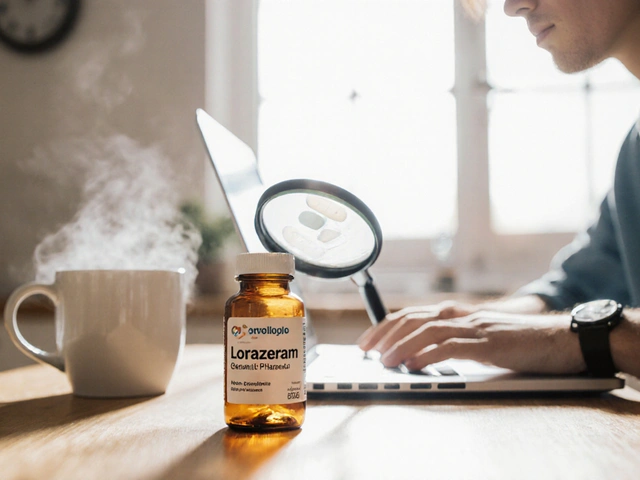Alternatives to Common Medications: Safe, Practical Options
What do you do when a prescription is too expensive, out of stock, or causes bad side effects? Knowing reasonable alternatives can save you time, money, and stress. This page collects practical options and shows how to choose a safe swap without guessing.
How to pick a safe alternative
Start with the active ingredient. Doctors and pharmacists think in generic names, not brand names. If your doctor prescribes Xifaxan, ask about generic rifaximin or other antibiotic classes that treat the same condition. Always check interactions with medicines you already take. Ask: does the alternative treat the same problem, at a similar dose, and with acceptable side effects?
Second, use credible sources. Talk to your prescriber or pharmacist first. If you search online, pick licensed pharmacies and well-known health sites. Never buy prescription-only drugs from sites that don’t ask for a valid prescription or list a physical address and license information.
Third, weigh risks vs benefits. Some alternatives are newer and expensive biologics; others are older generics. New drugs may work better for certain people but can carry unknown long-term risks. Cheaper options might work just as well for many patients. If cost is the issue, ask about patient-assistance programs, coupons, or switching to a generic.
Quick alternatives for common problems
Asthma rescue: When albuterol (Ventolin) is unavailable, short-acting alternatives exist but are not identical. Your clinician can advise on inhaler swaps, nebulized bronchodilators, or temporary plans while you get a refill. Never improvise with the wrong drug.
IBS and gut infections: Xifaxan (rifaximin) has cheaper generics and sometimes insurance-friendly substitutes. For bacterial infections like those treated with Flagyl (metronidazole), viable options include tinidazole or other antibiotics—choice depends on the infection type and local resistance patterns.
Allergies and asthma controllers: If montelukast causes issues or seems ineffective, options in 2025 include inhaled steroids, antihistamines, or biologic drugs for severe cases. Talk benefits, monitoring, and cost with your doctor.
Male sexual health: If you want non-prescription approaches instead of sildenafil or Priligy, lifestyle changes—exercise, better sleep, less alcohol—plus evidence-backed supplements can help. For prescription replacements, SSRIs or topical options may be discussed with your prescriber.
Saving money: Use prescription savings apps, compare SingleCare, GoodRx and RxSaver, or try pharmacy discount card strategies. Combine manufacturer coupons with insurance when allowed and ask your pharmacist about generics or therapeutic equivalents.
Final practical tips: always get a clear reason for a switch in writing, check side effects, and set a follow-up. If you must buy online, verify the pharmacy’s license, insist on a prescription, and avoid deals that look too good to be true. Alternatives help—when chosen carefully and with your healthcare team.

Finding reliable alternatives to Universal Drugstore can be a challenge, whether you're looking for affordable medications or a reputable online pharmacy. This article dives into some of the top alternatives, like CanadaDrugWarehouse, offering insights into their pros and cons. Discover secure options with competitive pricing, but be aware of the potential downsides like limited feedback or shipping concerns.
Chris Gore Mar 21, 2025
This article delves into seven alternatives to Hydroxychloroquine, offering insights into their pros and cons for those seeking different treatment options. It provides a practical guide for understanding the benefits and limitations of each alternative medication, complemented by a summary comparison in tabular format. Readers will find the information concise yet comprehensive, aiding them in making informed decisions.
Chris Gore Jan 30, 2025
NorthwestPharmacy.com has long been a go-to source for online medication, but several other reliable online pharmacies have emerged in 2025 offering unique features and services. This article explores eight noteworthy alternatives, each with its own pros and cons—from telemedicine integration and free shipping to competitive pricing. We provide detailed insights to help consumers make informed decisions about their pharmaceutical needs, highlighting innovative solutions and convenience offered by each option.
Chris Gore Jan 7, 2025
Discover seven valuable alternatives to RexMD.com in 2024, each offering unique telehealth solutions for men's health. From comprehensive platforms like Hims and Ro, to specialized services like BlueChew, these options cater to diverse needs. Learn about the pros and cons of each, helping you make informed decisions about your health care strategy. Whether you prefer wide-ranging health options or focus on specific issues, this guide is tailored to help you find the best fit.
Chris Gore Oct 20, 2024



